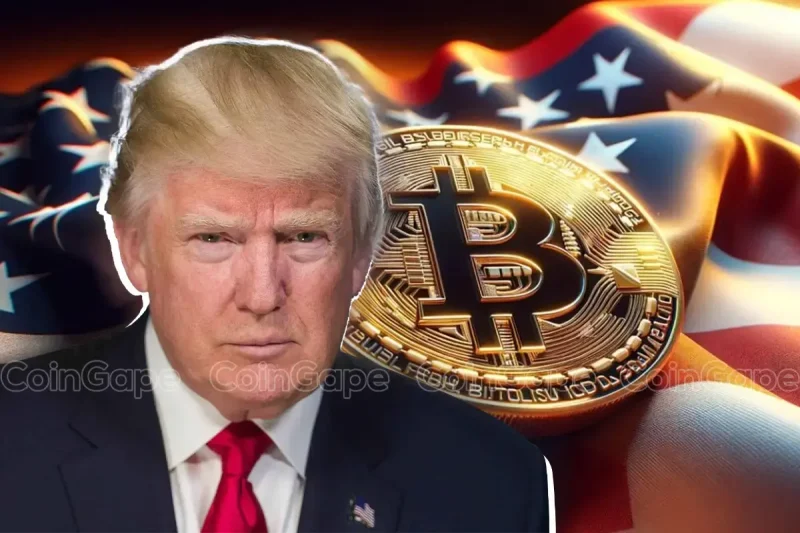
How Will Donald Trump’s Tariff Plans Impact The Crypto Market?
President-elect Donald Trump is reportedly considering declaring a national economic emergency to implement a universal tariff program targeting allies and adversaries. These tariffs, potentially introduced under the International Economic Emergency Powers Act (IEEPA), will realign global trade balances.
Meanwhile, Federal Reserve Governor Christopher Waller addressed concerns about inflation and the potential economic ramifications of such tariffs. This development raises questions about how these policies may influence the cryptocurrency market.
Donald Trump’s Tariff Strategy
As reported by CNN, President-elect Donald Trump is considering the International Economic Emergency Powers Act (IEEPA) to implement tariffs. The intended tariffs are to rebalance global trade while focusing on the manufacturing sector in the United States. Trump’s preference for IEEPA lies in its flexibility, allowing swift implementation without needing extensive national security justification.
Supporters of the tariffs argue they could rebuild American industrial capacity and strengthen the economy. However, the uncertainty surrounding the scope and execution of these tariffs could ripple through global financial markets. This may influence investor behavior in emerging sectors like the crypto market.
Donald Trump’s deputy assistant for International Economic Affairs, Kelly Ann Shaw, commented,
“I think the president has broad authority to impose tariffs for a variety of reasons, and there are a number of statutory bases to do so.”
Federal Reserve’s Perspective on Tariffs and Inflation
Concurrently, Federal Reserve Governor Christopher Waller has addressed the possible inflationary risks associated with Trump’s tariff proposals. Waller noted that while inflation stalled above the Fed’s 2% target in late 2024, he remains optimistic about a gradual decline in 2025. He added that increased tariffs are unlikely to cause persistent inflation, decoupling their potential effects from broader economic trends.
Waller stated,
“I will support further cuts in 2025, but the pace will depend on further inflation progress. I don’t expect tariffs to have a significant impact on inflation.”
The Federal Reserve lowered interest rates by 25 basis points at the end of 2024, and more cuts will follow based on the inflation rate. The outlook indicates that monetary policy could continue with an accommodative stance in the year 2025. This will support financial markets, including cryptocurrencies, to improve liquidity and investment flow.
Implications of Tariffs on The Cryptocurrency Market
If the Fed cuts interest rates further, as expected by the market, then there is the possibility that more funds could flow into the crypto market for better returns. Usually, such rate cuts fuel risk-on sentiment, so assets such as crypto benefit from it.
However, Donald Trump’s tariff policies may create broader trade uncertainties. This may indirectly influence the crypto market through changes in global economic confidence.
Trade disruptions could lead to diminished faith in traditional financial systems, potentially encouraging a shift toward decentralized digital assets like Bitcoin and Ethereum. On the other hand, if tariffs introduce unforeseen inflationary pressures, the Federal Reserve might pause or reverse rate cuts, which could dampen optimism in the crypto market.
The Federal Reserve and broader economic concerns have been among the major reasons for the cryptocurrency market crash. Rising U.S. Treasury yields and a hawkish Fed stance have fueled risk-off sentiment, drawing capital away from cryptocurrencies.
The post How Will Donald Trump’s Tariff Plans Impact The Crypto Market? appeared first on CoinGape.

